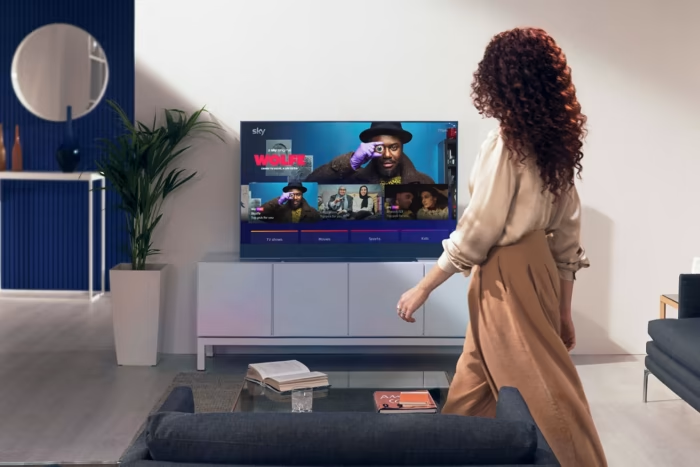Smart-homes


The Rise of Smart TVs: Understanding Today’s Essential Entertainment Technology
Smart TVs have revolutionized the way we consume entertainment, transforming our living rooms into dynamic hubs of connectivity, content, and convenience. Gone are the days when a television was merely a screen for cable or antenna broadcasts. Today, smart TVs integrate streaming services, apps, voice assistants, and more, becoming an essential part of modern homes. Let’s dive into the evolution of smart TVs, their defining features, and how they’re shaping the future of entertainment technology.
What Is a Smart TV?
A smart TV is a television equipped with internet connectivity and an operating system that allows users to access streaming services, apps, and other features beyond traditional broadcasting. Essentially, it combines the functionality of a traditional TV with the capabilities of a computer or smartphone, all in one device.
The Evolution of Smart TVs
The journey of smart TVs began in the early 2010s, when manufacturers started integrating internet capabilities into their television sets. Over the years, advancements in technology and user demand have propelled these devices into the mainstream.
1. Early Innovations
Initial models were limited in scope, offering basic web browsing and a handful of pre-installed apps. The user interfaces were often clunky, and the processing power left much to be desired.
2. Streaming Boom
As streaming platforms like Netflix, Hulu, and YouTube gained popularity, smart TVs evolved to support these services natively. This marked a turning point, as viewers began shifting away from traditional cable subscriptions in favor of on-demand streaming.
3. Modern Capabilities
Today’s smart TVs come with advanced features like 4K resolution, HDR support, voice assistants, and even gaming capabilities. They’ve become central to home entertainment ecosystems, integrating seamlessly with smart home devices and accessories.
Key Features of Smart TVs
1. Streaming Services
Smart TVs offer direct access to popular streaming platforms like Netflix, Amazon Prime Video, Disney+, and HBO Max. With these apps pre-installed or available for download, users can binge-watch their favorite shows and movies without needing additional hardware.
2. Voice Control
Many smart TVs are equipped with voice assistants like Amazon Alexa, Google Assistant, or even proprietary systems like Samsung’s Bixby. This allows users to search for content, adjust settings, and control other smart home devices using simple voice commands.
3. App Ecosystem
Beyond streaming, smart TVs offer a range of apps for fitness, education, gaming, and more. From Peloton workouts to interactive learning for kids, these apps expand the TV’s utility far beyond entertainment.
4. Screen Mirroring and Casting
Features like Apple AirPlay, Google Cast, and Miracast enable users to mirror their smartphone, tablet, or laptop screens onto the TV. This is perfect for sharing photos, presentations, or mobile apps on a larger screen.
5. Gaming Capabilities
With cloud gaming services like Xbox Cloud Gaming and NVIDIA GeForce Now, smart TVs are becoming viable platforms for gaming enthusiasts. Some models even support console-free gaming with built-in controllers.
6. Smart Home Integration
Smart TVs often act as a hub for smart home ecosystems, allowing users to monitor security cameras, control smart lights, and adjust thermostats directly from the TV interface.
Benefits of Smart TVs
1. Convenience
Having all your entertainment options in one place eliminates the need for multiple devices. With a smart TV, you can stream, browse, and even shop online from the comfort of your couch.
2. Enhanced Viewing Experience
Features like 4K and 8K resolution, Dolby Vision, and HDR create a cinematic experience in your living room. Paired with surround sound systems, smart TVs deliver immersive entertainment.
3. Cost-Effective Entertainment
Smart TVs enable cord-cutting, allowing users to replace expensive cable packages with affordable streaming subscriptions. Many free streaming platforms also offer quality content.
4. Continuous Updates
Unlike traditional TVs, smart TVs receive regular software updates, ensuring they stay compatible with the latest apps and features.
Challenges and Considerations
While smart TVs offer numerous benefits, there are some factors to keep in mind:
1. Privacy Concerns
With internet connectivity and voice assistants, smart TVs can pose privacy risks. Manufacturers collect user data to improve services, but it’s important to review and manage privacy settings.
2. User Interface Variability
Each brand uses its own operating system, which can vary in terms of usability and app availability. Popular systems include LG’s webOS, Samsung’s Tizen, and Google TV.
3. Internet Dependency
Smart TVs require a stable internet connection to access most of their features. Slow or unreliable Wi-Fi can hinder the experience.
Future Trends in Smart TV Technology
The world of smart TVs continues to evolve, with several exciting trends on the horizon:
1. 8K Resolution
As 8K content becomes more widely available, smart TVs with 8K capabilities will become the new standard for high-definition viewing.
2. AI-Driven Features
Artificial intelligence is making smart TVs even smarter. Features like content recommendation engines, adaptive picture settings, and advanced voice recognition are becoming more sophisticated.
3. Sustainable Design
Manufacturers are focusing on eco-friendly designs, using recyclable materials and improving energy efficiency to reduce environmental impact.
4. Enhanced Interconnectivity
With the rise of IoT (Internet of Things), smart TVs are expected to integrate even more deeply with other devices, creating fully connected smart homes.
Is a Smart TV Right for You?
If you value convenience, versatility, and cutting-edge technology, a smart TV is a worthwhile investment. Whether you’re streaming your favorite shows, gaming, or managing your smart home, a smart TV brings everything together in one sleek package.
Conclusion
The rise of smart TVs marks a significant shift in how we experience entertainment. By combining traditional television functionality with internet-powered features, smart TVs have become a central part of modern life. As technology continues to advance, these devices will only grow more powerful and versatile, solidifying their place as essential entertainment tools. If you haven’t upgraded to a smart TV yet, now is the perfect time to explore the options and bring your entertainment setup into the future.

Small smart home gift ideas

Smart Home Gifts Under $100: Affordable Tech That Delights


Top 5 Outdoor Smart Lighting Options

Choosing Smart Home Products for Security and Access

How Can Smart Home Technology Help Protect Your Kids?

Choosing Smart Home Products: Surveillance and Home Monitoring



